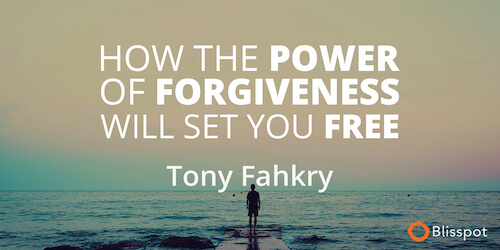The Healing Power Of Love
Let go. Why do you cling to pain? There is nothing you can do about the wrongs of yesterday. It is not yours to judge. Why hold on to the very thing which keeps you from hope and love? ~ Leo Buscaglia
Emotional pain is a portrait into the past due to recycled memories brought into the present moment. Think about this in your own life. What memories are you holding on to that bind you to the past? Are those memories serving you? If not, are you willing to let go of them and forgive yourself and others who contributed to the pain? I know these are difficult questions to answer. Like you, I too have suffered pain, however I appreciate that painful memories are remnants of the past that require healing and integration. Reflect on the following tale from Anthony de Mello’s book One Minute Wisdom in which he explains how pain is apparent when we invite the past into the present moment: “How shall I attain Eternal Life?” “Eternal Life is now. Come into the present.” “But I am in the present now, am I not?” “No.” “Why not?” “Because you haven’t dropped your past.” “Why should I drop my past? Not all of it is bad.” “The past is to be dropped not because it is bad but because it is dead.”
The past is an illusion because it doesn’t actually exist in our present moment experience, other than a faint memory. Suffering is eased when we reconnect with this moment and honour it as a cherished gift. Through our expanded awareness, we minimise the intensity of painful memories and develop an appreciation of what we have. As we cast our attention to the here and now, earlier memories fade through a change in awareness. Memories have an emotional relationship to thoughts and with enough intensity, grow stronger neural networks in the brain. To change those memories, we ought to focus on forming new ones. This is the essence of what author and psychotherapist Linda Graham means when she writes in Bouncing Back: Rewiring Your Brain for Maximum Resilience and Well-Being: “Processing an emotion entails perceiving it, acknowledging it, being with it, and then letting the wave move through the body (as it naturally will if we don’t grip it or feed it).” Whilst it may be obvious, healing takes place when we cease to identify with the pain of the past. In doing so, we invite the healing power of love to permeate our life. This is because love has a higher energetic frequency than emotional states such as fear, anger or sadness. We find freedom in creating a new script in which to view the past. This new story does not extinguish our memories, it creates an empowering relationship connecting the past to the present, so peace, love and healing emerge. How do you feel about this? Are you willing to examine your painful memories to heal and integrate them into the wholeness of your being?
Are You Enslaved To The Past?
Only by acceptance of the past can you alter it ~ T. S. Eliot
To heal emotional wounds requires courage to confront the pain. This is because our inner spirit is more resilient than we imagine. For example, I recall my stern upbringing as a child, dominated by an uncompromising father who sought to shape me into someone I was not cut out to be. Years later throughout adulthood, I formed an incomplete story relating to the events of my childhood, steeped in anger and blame. Eventually, I created a new script by bringing forgiveness and peace to the past. In doing so, I healed twenty years of emotional pain because I was no longer willing to remain captive to my emotional wounds. For those having endured mental, emotional or physical trauma the pain is undoubtedly real. However, if we wish to heal our pain-story, something must give, otherwise we become enslaved to the past. Inner peace is fundamental to our happiness and we ought to choose this over pain if we seek inner freedom. Anger, blame and love cannot live in the same place. One must recede to give way to the other. I love this passage by the Tibetan Buddhist, Pema Chodron who writes: “We always want to get rid of misery rather than see how it works with joy. The point isn’t to cultivate one thing as opposed to another, but to relate properly to where we are.” At the most primitive level, pain is an invitation to examine the disharmony in our life. It is not intended to prolong suffering unless we allow ourselves to remain trapped in it.
Pain calls us to heal our emotional conflicts by directing our attention towards peace and love. Our choices become powerful beacons of hope to rewrite the past with compassion. We create a compelling future, instead of being dictated by untoward events of the past. Moreover, the momentary pain of confronting the past far outweighs carrying the burden of grief into the present and future. Pain shapes our life so we become tender in those hard places we dare to visit. For example, if I asked you to drop your emotional pain who are you beneath that? Holding on to pain conceals our known sense of self, and we form a distorted impression of who we think we are. However well-meaning our intentions, the façade is a self-constructed image that serves to protect us. Considering this, spend some time over the coming weeks connecting with any emotional pain of the past. Write them down so you have a clear picture of what you’re working with. If it is too traumatic to bring up old memories, do not push yourself if you are not ready. If you are working with a trained therapist, follow their guidance. If you feel comfortable with the memories, ask yourself: What purpose could replaying these memories serve you? What is the payoff? For example, a client I was recently coaching was using worry and fear as a way to feel in control of situations she was powerless over. Her worry gave her a sense of command, however it was wreaking havoc in her life. Therefore, we must be willing to let go of the old to invite the new and expansive energy to permeate our lives if we wish to make peace with the past.








